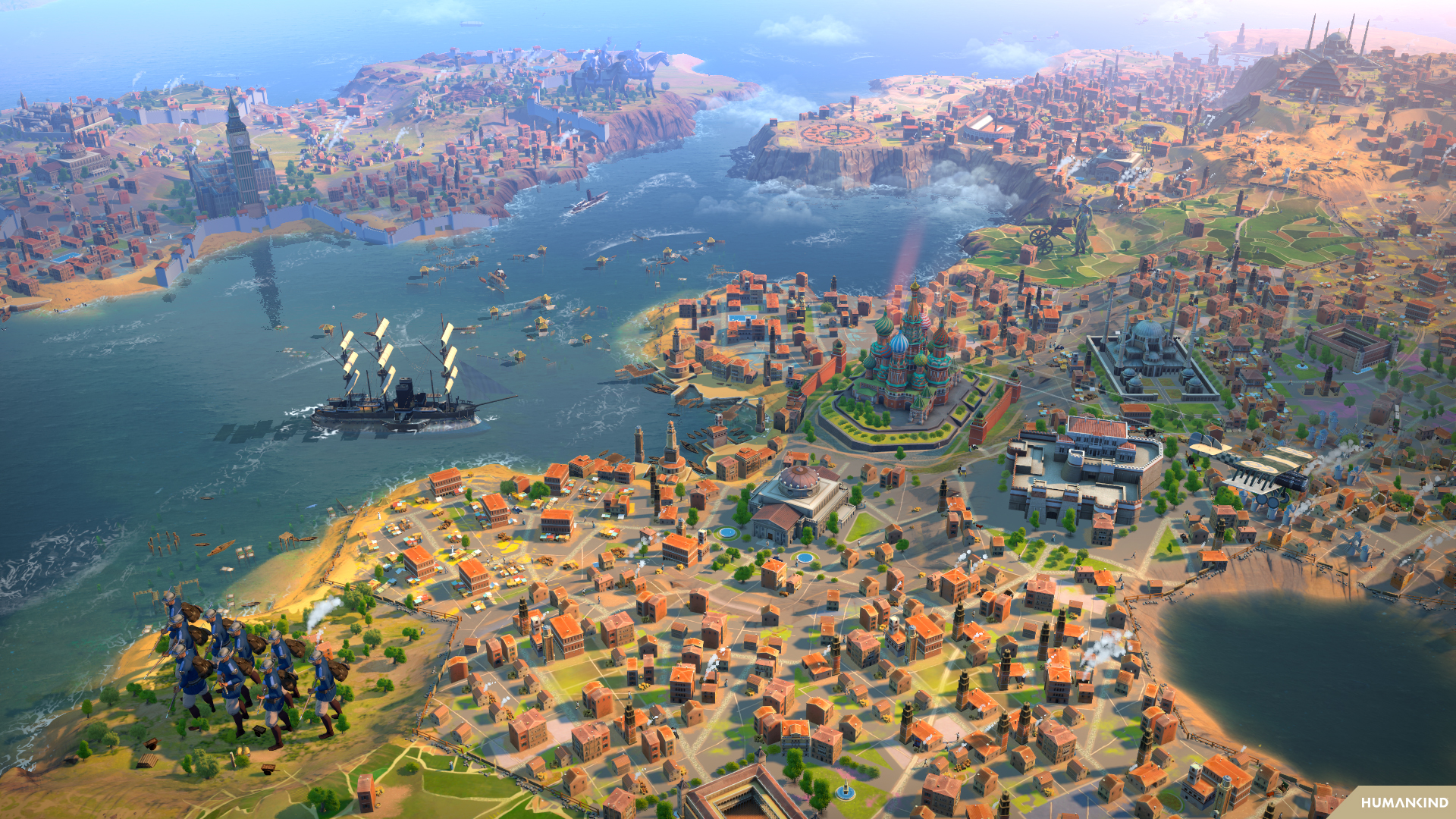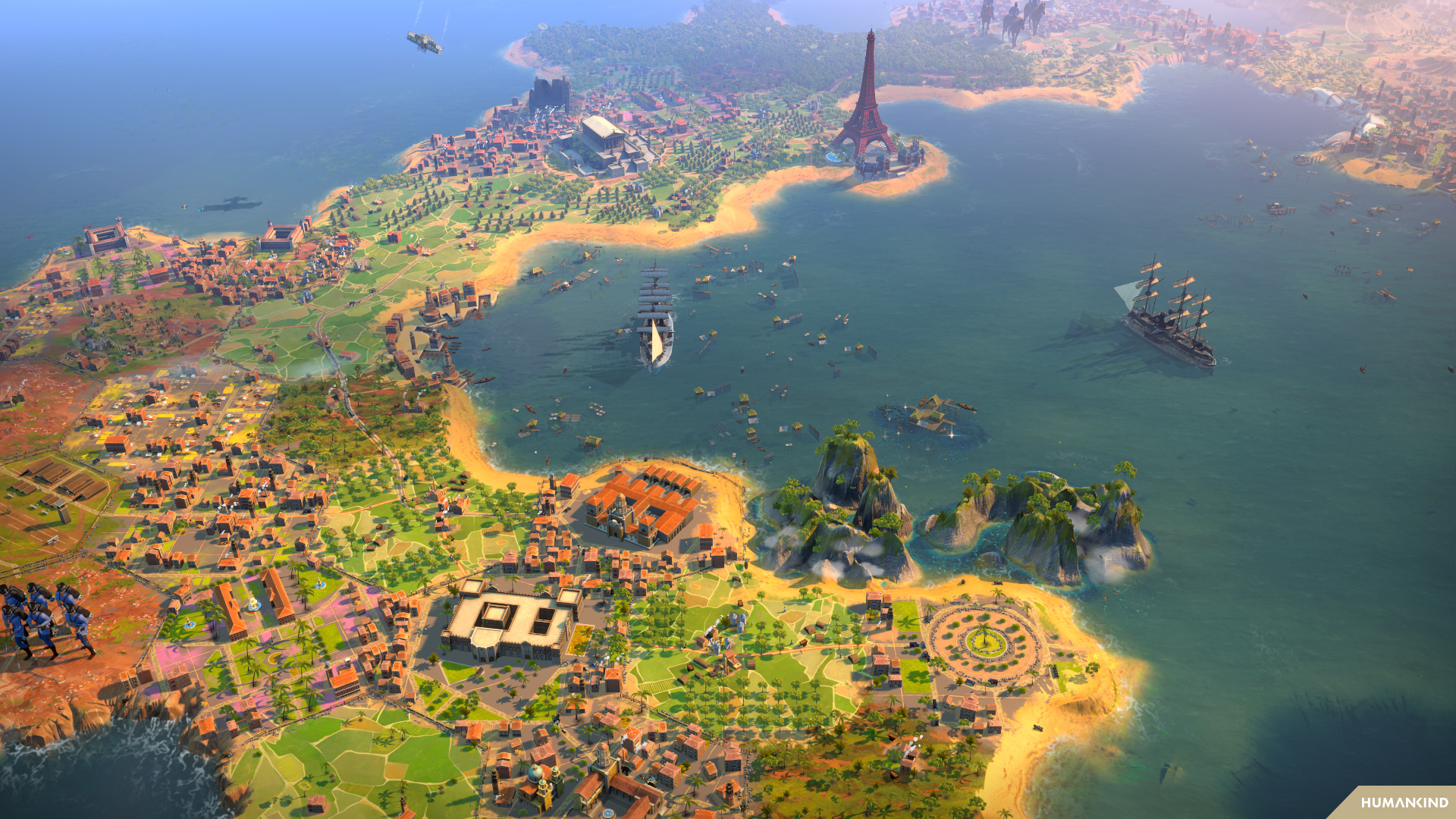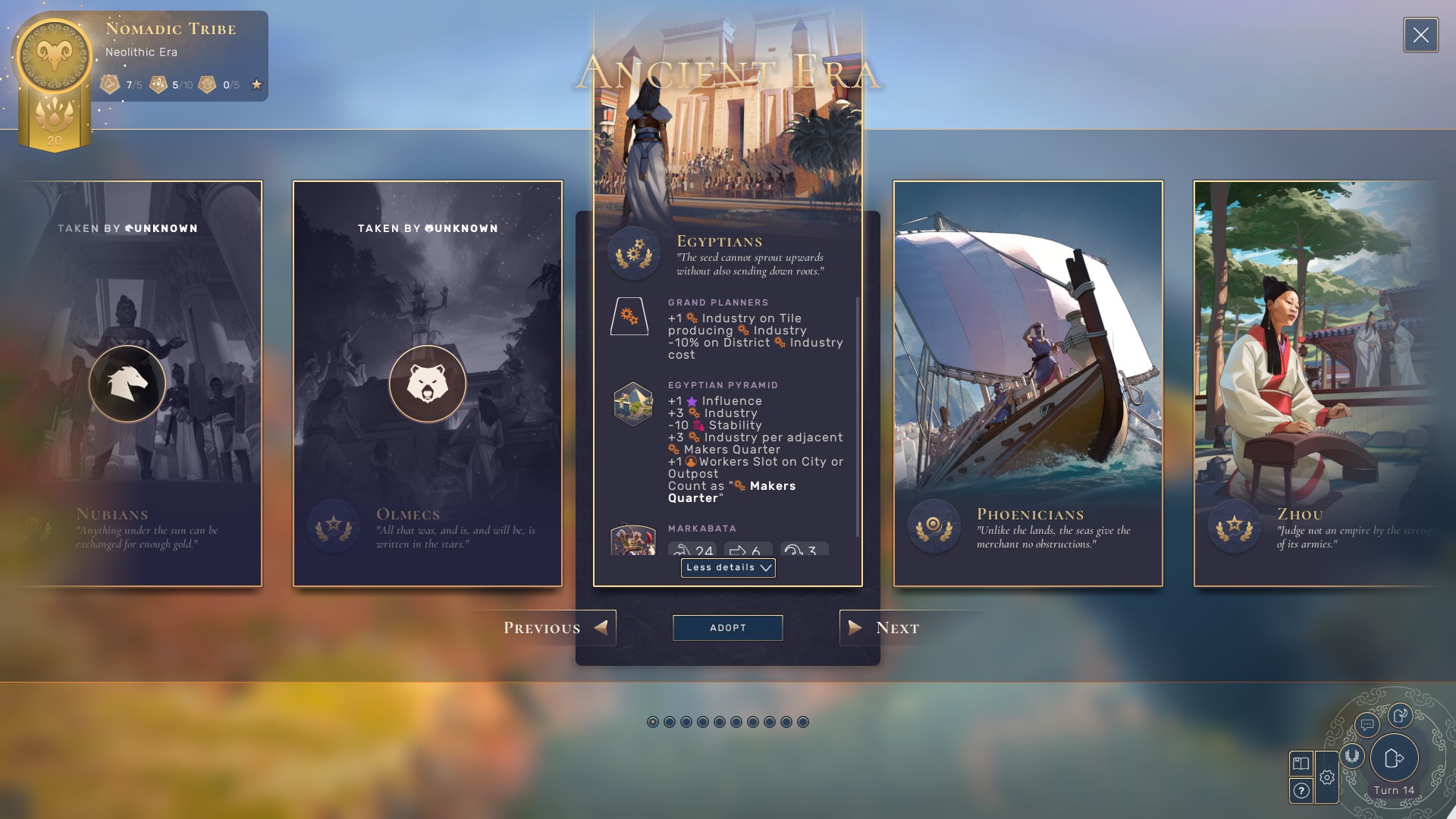The best culture to choose in Humankind
Become a culture chameleon as you master affinities, Legacy Traits, and eras.

The Humankind culture system is what really sets it apart from most other 4x games, letting you shed your heritage and opt for a newer, fancier model. You retain some choice parts from your previous culture in the form of legacy traits, units, and pre-existing buildings, but you get to add another layer to your civilization's evolution.
Humankind is all about creating powerful synergies through 'what if?' scenarios, taking cultures from across space and time and mashing them together to form the ultimate civilization for your particular playstyle. With six eras and 60 cultures, that's a lot of combinations. But one of the best things about Humankind is that there's no right answer.
Some combos are more powerful than others, but when the choice is made based on the current challenges facing your civilization, that doesn't always matter. Here's an explanation of how Humankind's cultures work, and some tips to help you choose the best one for you.
Cultures and affinities
What are cultures and affinities in Humankind?
Culture reflects your preferred playstyle in Humankind. Every game takes place over seven eras, and for six of these you'll have to choose a culture and earn Era Stars based around its affinity in order to advance to the next. There are seven affinities overall that define Humankind's 60 cultures, and each comprises a specific playstyle and gameplay focus:
| Affinity | Playstyle | Affinity Action | Cultures |
|---|---|---|---|
| Agrarian | Population growth and food | Greener Pastures: Can attract one population from each adjacent territory's city or outpost. Creates a Grievance against you for each impacted empire. | Harappans, Celts, English, Haudenosaunee, Mexicans, Brazilians, Turks |
| Militarist | Warfare and domination | Iron Reserves: Can instantly raise militia armies in your city at the cost of population. | Hittites, Mycenaeans, Goths, Huns, Aztecs, Mongols, Norsemen, Poles, Germans, Zulu |
| Aesthete | Diplomacy and influence | Cultural Blitz: Can spend money to push back foreign spheres of influence in specific territories | Olmecs, Zhou, Mauryans, Franks, Edo Japanese, Ming, Austro-Hungarians, Italians, Egyptians, Indians |
| Builder | Production and industry | Land Raiser: Can convert science and money output into industry. | Egyptians, Maya, Khmer, Mughals, Persians, Siamese, Australians |
| Expansionist | Claiming new territory | Under One Banner: Can annex territories occupied by another empire's outposts or administrative centers. | Assyrians, Achaemenid Persians, Romans, Teutons, Ottomans, Spanish, British, Russians, Americans, Soviets |
| Merchant | Resources and money | Power Investor: Can use influence to create an extractor on a resource deposit or generate money. | Nubians, Phoenicians, Aksumites, Carthaginians, Byzantines, Ghanaians, Dutch, Venetians, Chinese |
| Scientist | Technology and science | Collective Minds: Can convert industry and money output into science. | Babylonians, Greeks, Umayyads, Joseon, French, Japanese, Swedes |
As well as an action, every affinity also has a passive affinity skill that contributes to the culture's playstyle. These can be viewed by hovering over the affinity symbol on the culture card when choosing. Each culture also has three other defining features:
- Legacy Trait: This passive bonus is listed at the top of a culture card and is carried over to the next era even when you choose a new culture.
- Emblematic Quarter: This special district is usually a reskinned version of a pre-existing production quarter, but adds powerful bonuses based on surrounding tiles, and sometimes the number of quarters overall. There is usually a limit of one per territory, and you cannot build these once the era ends.
- Emblematic Unit: A special military, seafaring, or scout unit. These are carried over to the next era.
If you really like your current culture, you can also choose to take it to the next era. This means you will earn an ongoing 10% Fame bonus until you choose your next, but it's usually not worth it. Humankind is all about synergising different cultures, so if you don't add another to the pot, it can lead to stagnation, especially as you're deciding not to stack legacy traits and emblematic quarter effects.
How to choose

How to choose your Humankind culture
Humankind is about combining cultures to build the ultimate civilisation, and that means you can choose whichever you want. For example, you might stick with one affinity throughout, combining the Harappans, Celts, English, Haudenosaunee, Mexicans, and the Turks to create the ultimate Agrarian civilisation. You might also decide to switch part way through to a Militarist culture and use that excess population to create huge armies, or to drive industrial output with a Builder culture, instead.
Keep up to date with the most important stories and the best deals, as picked by the PC Gamer team.
Any combination of affinities is possible, but the key is choosing cultures that directly complement and lead on from each other. You want a culture that's able to take advantage of what you already have in terms of resources, districts, and cities, but also help you overcome any problems you predict in the next era, such as other Empires invading. Adapt to deal with an ever-changing world.
Best starting culture

What's the best starting culture?
In the Ancient Era, it's the Harappans. While the Myceaneans and the Egyptians are good starters for either warfare and industry, those affinities also rely on population. Every civilization is built on food, and the Harappans legacy trait of +1 food on rivers and food-producing tiles, as well as their Canal Network emblematic quarter, really help grow your population.
Since their emblematic unit, Runners, are a better form of Scout, all your Tribe members will upgrade into them as soon as you enter the Ancient Era. This unit has really good movement, meaning you can quickly fan out to explore, establish outposts, sack sanctuaries, and claim curiosities.
When you arrive in the Classical Era, you'll have a strong population infrastructure with which to do what you want, whether it's pivoting to produce science, money, industry, or to start churning out units.

Sean's first PC games were Full Throttle and Total Annihilation and his taste has stayed much the same since. When not scouring games for secrets or bashing his head against puzzles, you'll find him revisiting old Total War campaigns, agonizing over his Destiny 2 fit, or still trying to finish the Horus Heresy. Sean has also written for EDGE, Eurogamer, PCGamesN, Wireframe, EGMNOW, and Inverse.

